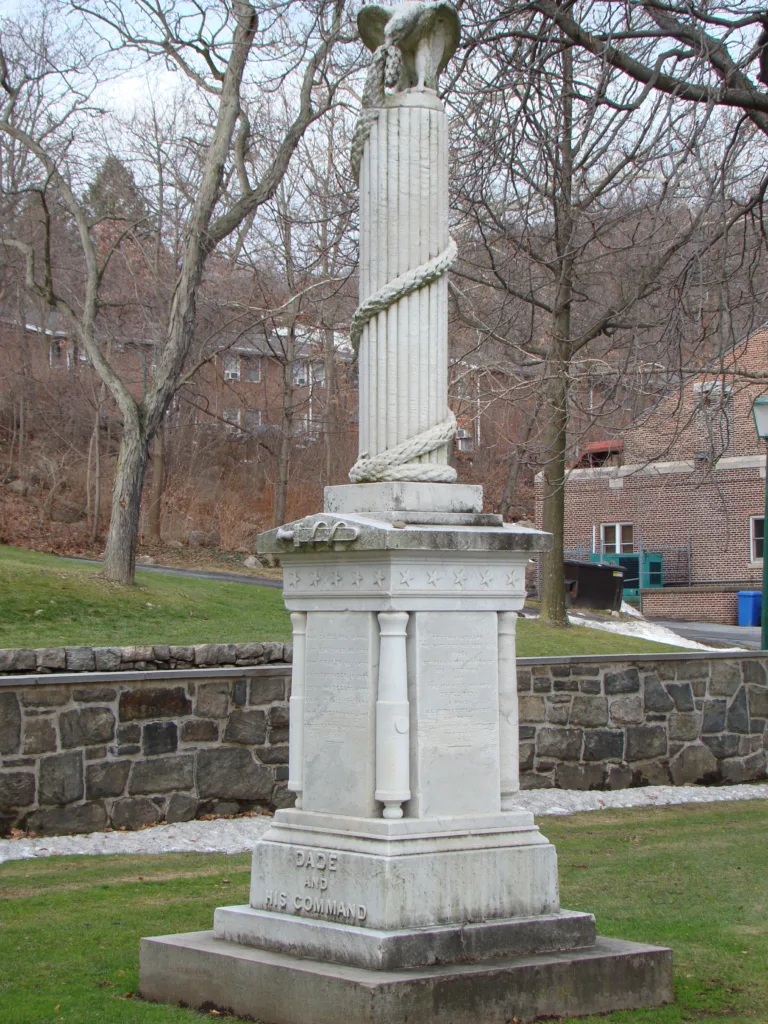Dade is a term that holds historical significance, particularly in relation to Dade County in Florida, United States. Dade County, now known as Miami-Dade County, was established on January 18, 1836, under the Territorial Act of the United States. The county was named in honor of Major Francis L. Dade, a brave soldier who lost his life during the Second Seminole War in 1835. The Dade Battlefield, where Major Dade met his untimely demise, was subsequently named after him.
The name “Dade” itself has an ancient Anglo-Saxon origin, deriving from the baptismal name Dade. In Old English, the word “daed” translates to a deed or an exploit, reflecting the valor and courage associated with Major Dade and his sacrifice. It is interesting to note that the use of personal names as surnames emerged relatively late in the development of naming traditions, and Dade is one such example.
The significance of the term “Dade” extends beyond its association with the county and the historical figure it honors. It also serves as a reminder of the sacrifices made by individuals in the pursuit of a greater cause. Major Dade’s name lives on, not only through the county and battlefield named in his honor but also through the legacy of courage and bravery that he represents.
While the term “Dade” may not hold much meaning in modern-day conversations, it carries a deep historical and symbolic significance. It serves as a testament to the sacrifices made by those who came before us, reminding us of the importance of honoring and remembering their deeds.
The term “Dade” refers to the historical figure Major Francis L. Dade and the county and battlefield named after him. It symbolizes bravery, sacrifice, and the valor of individuals who fought for a cause. By understanding the historical context behind the term, we can appreciate its significance and the legacy it represents.
What Does The Dade In Miami-Dade Mean?
The term “Dade” in Miami-Dade refers to Major Francis L. Dade, a significant figure in American history. Major Dade was a soldier who tragically lost his life during the Second Seminole War in 1835. As a tribute to his bravery and sacrifice, the county of Dade, now known as Miami-Dade, was named after him. The Dade Battlefield, where Major Dade fought his final battle, is also named in his honor. The creation of Dade County on January 18, 1836, under the Territorial Act of the United States, marked the establishment of this county in Florida. Major Dade’s name continues to be commemorated through the county’s name, Miami-Dade, serving as a reminder of his contribution to the nation’s history.

What’s The Meaning Of Dade?
Dade, in its obsolete form, is a verb that means to walk unsteadily, resembling the gait of a child or moving slowly. This term is rarely used in modern English and has fallen out of common usage. It describes a particular manner of walking that lacks stability or confidence. It implies a sense of uncertainty or an unsteady physical condition. Please note that the term “dade” is no longer commonly understood and is considered archaic.
Where Does The Word Dade Come From?
The word “Dade” is derived from an ancient Anglo-Saxon name. It originated from the baptismal name “Dade,” which was a personal name in Old English. The Old English word “daed” is the root of this name, which translates to “a deed” or “an exploit.” It is important to note that baptismal names began to be used as surnames relatively late in the development of naming traditions.
Conclusion
Dade is a county located in the state of Florida, United States. It was established in 1836 under the Territorial Act of the United States and was named after Major Francis L. Dade, who lost his life in the Second Seminole War. With a rich history dating back to the early days of American settlement, Dade County has played a significant role in shaping the region.
Dade County is known for its diverse population, vibrant culture, and stunning natural beauty. Home to the city of Miami, it is a popular tourist destination and a major hub of trade and commerce. The county is also renowned for its beautiful beaches, vibrant nightlife, and world-class entertainment options.
The etymology of the name “Dade” traces back to an ancient Anglo-Saxon personal name derived from the Old English word “daed,” meaning a deed or an exploit. This suggests that the county’s name carries a sense of significance and accomplishment, honoring the memory of Major Francis L. Dade and his brave actions during the Seminole War.
Dade County is a dynamic and influential region that continues to thrive and evolve. Its historical significance, cultural diversity, and natural attractions make it a fascinating place to explore and a key player in the growth and development of Florida.
